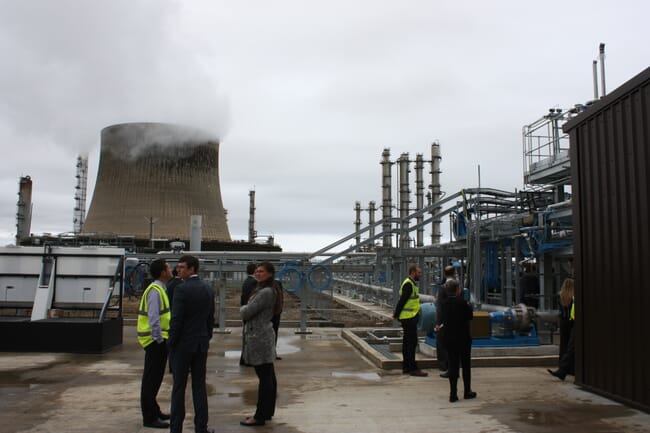Calysta’s FeedKind protein, which is made from methane-eating bacteria, has been developed ingredients for livestock, fish and pets. It has been shown to improve key nutritional metrics for commercial aquaculture – increased feed efficiency and the maintenance of a healthy digestive tract and immune system. And Calysta claim it is the aquaculture industry’s “first scalable alternative protein requiring no wild caught fish or agricultural land”.

The trials, to be designed by Nofima, will begin in early 2019.
“FeedKind protein is a cost-effective, sustainable feed ingredient for major farmed seafood species including salmon, trout and shrimp,” said Allan LeBlanc, Calysta’s senior director and FeedKind product manager. “The aquaculture industry is actively seeking new solutions to reduce costs associated with biological challenges and environmental impact. We look forward to working with Nofima, the industry’s preeminent research organisation, to address these compelling market demands.”
Mari Moren, director of research at Nofima, said: “We are eager to do research on FeedKind as we believe that this may be an example of new protein sources that can contribute to a more sustainable aquaculture. Feedkind’s effect on salmon will be thoroughly tested at Nofima’s research facilities along with the effects this protein may have on the physicochemical qualities of the feed pellet.”
FeedKind is approved for sale in the European Union and several Asian countries. It has been shown to use 77-98% less water and >98% less land than alternative ingredients such as soy or wheat proteins. In salmon, trout, and shrimp trials, FeedKind has been shown to produce equivalent growth and survival rates when compared to a conventional fishmeal diet. It is approved as an ingredient in organic systems for animal feed in the United Kingdom and EU. Samples are currently available for global customers and partners.


